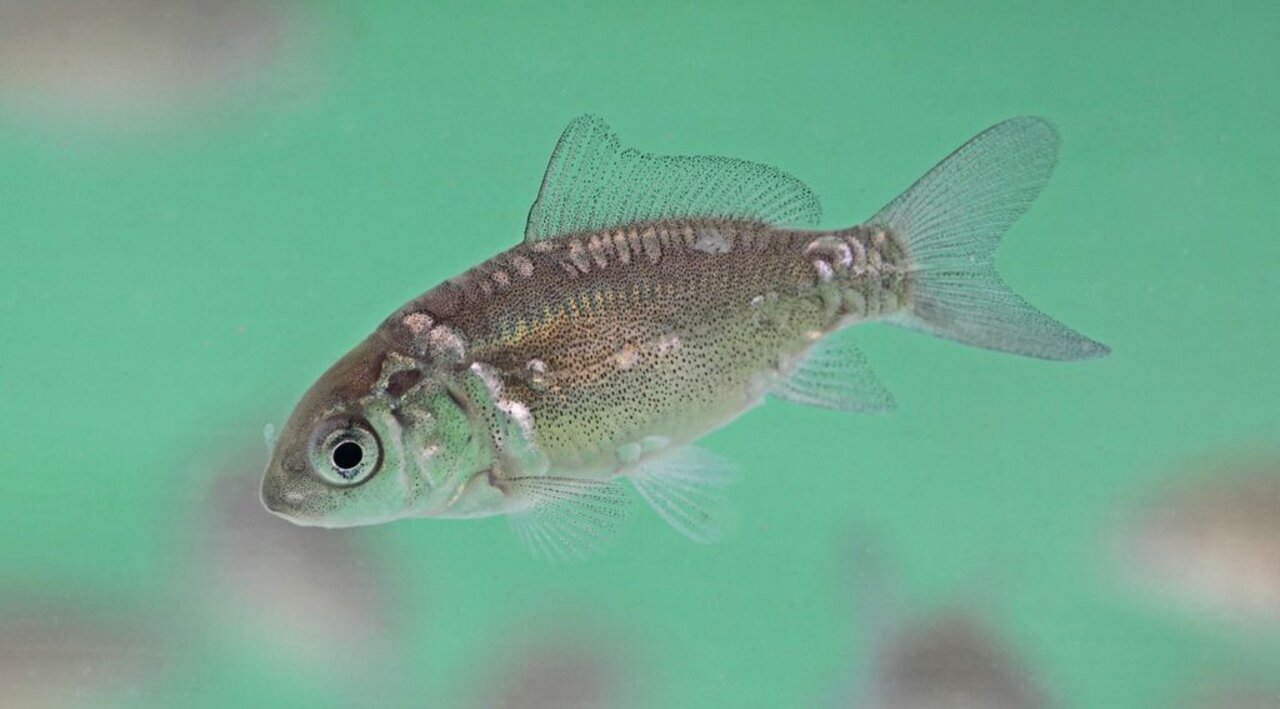Project
Rapeseed proteins in fish feed

Replacement of fishmeal by rapeseed protein concentrates and isolates in fish feed
Fishmeal is the most important marine protein source for fish feed. It is becoming scarcer and more expensive, because more and more fish is produced in aquaculture facilities. In addition, environmental concerns stimulated searching for alternatives.
Background and Objective
The provision of feed plays a key role in the projected increase in aquaculture production. One important prerequisite is the permanent availability of suitable raw materials. So far, the high protein content of fish feed for rearing carnivorous and omnivorous fish is mainly achieved through the use of fishmeal. Fish meal is the most important marine protein source for fish feed but also a limited resource. Because fish meal is increasingly scarce and therefore more expensive but also because of environmental concerns, alternative, cost efficient protein sources must be found, which are adapted to the physiological requirements of the fish. For this purpose, vegetable protein sources are highly relevant.
Rape is one of the world's most important oil seeds and is cultivated extensively in northern Germany. The protein rich by-products of rapeseed production and processing (meal and press cake) provide a cost efficient protein source. Wide availability, relatively high protein content and a desirable amino acid profile qualify rape products as interesting raw material for fish feed production.
Experiments have shown, however, that when used in fish feeds, despite high protein content the rape products often achieved inferior results compared to fish meal based diets. Obviously, the nutritional quality of rapeseed products largely depends on their levels of antinutritional factors, particularly glucosinolates, phytic acid, phenolic compounds and indigestible carbohydrates. With various processing techniques we produced rapeseed protein concentrates and isolates of varying quality. In feeding experiments with several fish species, we then examined, which rapeseed protein fractions are most suitable as fish meal replacement in fish feeds.
Approach
In our experiments, a high-quality rapeseed protein concentrate with a crude protein content of 71% and a rapeseed protein isolate (canola) with a crude protein content of 81% were tested as fish meal replacement in feeds for carp (Cyprinus carpio), catfish (Silurus glanis), turbot were (Psetta maxima) and Rainbow trout (Oncorhynchus mykiss). In the feeding experiments, we prepared and tested feed, in which fish meal was replaced gradually by rapeseed protein concentrates and isolates. The evaluation was carried out in terms of growth performance, feed intake and feed conversion. In addition, for rainbow trout we analysed the protein digestibility separately for albumin and globulin fractions of rapeseed concentrates and for canola protein isolate.
Results
In the experiments, it was possible to replace 33% of fishmeal in the feeds for carp and turbot and 25% for catfish without impairment of growth. Higher exchange rates resulted in reduced feed acceptance, which is attributed to adverse taste effects of rapeseed protein concentrates. At high fishmeal exchange rates we also noted a decrease in feed efficiency. For rainbow trout fish meal in the diet could be replaced to 100 % by rapeseed protein concentrate without reducing growth or feed efficiency. For this species, the protein digestibility of fish meal (89.2%) and globulin concentrate (88.8%) was significantly higher than for albumin concentrate (77.7%).
For canola protein isolate a protein digestibility of 84.6% was determined in rainbow trout. In a feeding trial with rainbow trout, in which fish meal was substituted on the basis of digestible protein by canola protein isolate, a complete fish meal replacement without affecting growth performance and feed utilization could be achieved.
The results demonstrate the potential of high-quality rapeseed protein products for fish feed. In particular for the diet of rainbow trout, one of the most important fish species in European aquaculture, we have identified rapeseed protein concentrates and canola protein isolate as excellent fish meal alternatives.
The results have been published in various international journals and in the PhD-thesis of Hanno Slawski: "Rapeseed protein as fish meal replacement in fish nutrition" (http://www.tierzucht.uni-kiel.de/dissertationen/diss_slawski_11.pdf). For this thesis, Dr. Slawski received the Award of the Association of German Fisheries Administrative Officers and Fisheries Scientists e.V. in 2012.
Involved external Thünen-Partners
- GMA Gesellschaft für Marine Aquakultur mbH
(Büsum, Deutschland)
Funding Body
-
European Union (EU)
(international, öffentlich)
Duration
10.2008 - 9.2011
More Information
Project status:
finished
Publications
- 0
Slawski H, Nagel F, Wysujack K, Balke DT, Franz P, Schulz C (2013) Total fish meal replacement with canola protein isolate in diets fed to rainbow trout (Oncorhynchus mykiss W.). Aquacult Nutr 19(4):535-542, DOI:10.1111/anu.12005
- 1
Nagel F, Slawski H, Adem H, Tressel R-P, Wysujack K, Schulz C (2012) Albumin and globulin rapeseed protein fractions as fish meal alternative in diets fed to rainbow trout (Oncorhynchus mykiss W.). Aquaculture 354-355:121-127, DOI:10.1016/j.aquaculture.2012.03.024
- 2
Slawski H, Adem H, Tressel R-P, Wysujack K, Koops U, Kotzamanis YP, Würtz S, Schulz C (2012) Total fish meal replacement with rapeseed protein concentrate in diets fed to rainbow trout (Oncorhynchus mykiss Walbaum). Aquaculture Int 20(3):443-453, DOI:10.1007/s10499-011-9476-2
- 3
Slawski H, Adem H, Tressel R-P, Wysujack K, Kotzamanis YP, Schulz C (2011) Austausch von Fischmehl durch Rapsproteinkonzentrat in Futtermitteln für Steinbutt (Psetta maxima L.). Züchtungskunde 83(6):451-460
- 4
Slawski H, Adem H, Tressel R-P, Wysujack K, Koops U, Wuerts S, Schulz C (2011) Replacement of fish meal with rapeseed protein concentrate in diets fed to wels catfish (Silurus glanis L.). Aquacult Nutr 17(6):605-612, DOI:10.1111/j.1365-2095.2011.00857.x
- 5
Slawski H, Adem H, Tressel R-P, Wysujack K, Koops U, Schulz C (2011) Replacement of Fishmeal by Rapeseed Protein Concentrate in Diets for Common Carp (Cyprinus carpio L.). Israeli J Aquacult 63(605):1-6

![[Translate to English:] [Translate to English:]](/media/_processed_/2/9/csm_Embryo-Exp_Gelege_9F_dpf5-200513111619_c8534a8199.jpg)
![[Translate to English:] [Translate to English:]](/media/_processed_/2/9/csm_Embryo-Exp_Gelege_9F_dpf5-200513111619_9027994d44.jpg)






